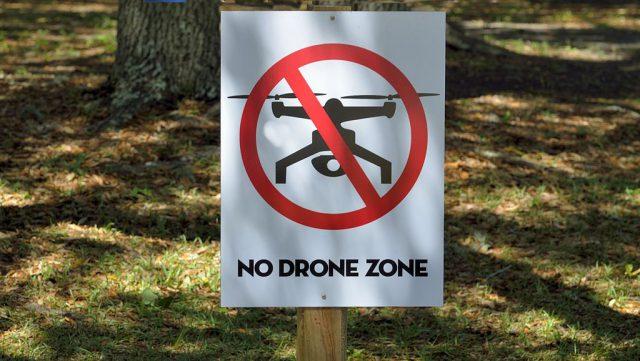
The beat
Extended police mandate in Haiti
The UN Security Council extended the mandate of the UN Mission for Justice Support in Haiti (MINUJUSTH). The mission is supporting the national police and assisting the Haitian government to strengthen rule of law. MINUJUSTH deploys seven police units and 295 individual police officers. The police units replaced UN peacekeeping troops, which left Haiti last year. The current mandate focuses on reforming the justice system. Haiti has been criticised for failing to address the longstanding issues of pre-trial detention and prison overcrowding.
Policing the cyber landscape
Technology is developing at unprecedented rates. To what extent are law enforcement agencies able to keep up? According to ASPI’s John Coyne, Australia’s law enforcement agencies need to improve their abilities to respond to new technology threats. He recommends strengthening public–private partnerships, improving recruitment and retention of technology skills, and shortening the time lag between criminal use of new technology and law enforcement’s response. It’s estimated that cybercrime costs the Australian economy $1 billion annually.
Beware the buzzing
Speaking of technological threats, visitors to the Queensland Commonwealth Games have been reminded to leave their drones at home. Such reminders are now regularly issued before major events (see #leaveyourdroneathome). Arguments about the right to fly drones, and law enforcement’s use of the technology, have caused friction between the public, police and regulatory bodies. But as ISIS’s use of drones in Syria has shown, drones pose a new risk to the public—particularly at large events—and law enforcement don’t yet have the means to mitigate the threat.
CT scan
Profile of a terrorist
This week two reports examined why people join terrorist organisations. The French Institute for International Relations released 137 shades of terrorism, which details common denominators among French jihadists such as limited education, criminal activity, ties to North Africa and poor integration into the labour market. New America, a US think tank, released the second volume of its report, All jihad is local, which examines data on 1,800 ISIS fighters and finds similar, but more detailed, patterns in ISIS mobilisation efforts. Terror profiles are contentious—fitting the profile doesn’t mean someone will become a jihadist. However, as the New America researchers note, preventing jihadist recruitment requires understanding and addressing the myriad factors that lead to radicalisation.
Can we avoid supporting illiberalism?
An Indonesian preacher has been sentenced to nine years in prison for inciting last May’s Jakarta suicide bombing. The prosecution had sought the death penalty, which has been common in Indonesia. Another radical cleric is awaiting sentencing and could receive the death penalty, and other convicted terrorists are on death row. The sentencing comes a month after Australia signed a memorandum of understanding (MOU) with ASEAN to counter international terrorism. The MOU seemed to promise Australian technical support to its ASEAN partners. As ASPI’s Isaac Kfir writes, delivering on such promises can be difficult for liberal democracies like Australia that want to support regional counterterrorism efforts without condoning or enabling oppressive policies. The Indonesian cases exemplify the conundrum—Australia is strongly against the death penalty.
Checkpoint
Kenyan border instability
Kenya suspended the construction of a 700 kilometre-long security wall on its border with Somalia. The construction, aimed at preventing al-Shabaab militias from crossing into Kenya, was criticised by Somalia, which said the wall encroached on its land. In addition, 64 houses in Mandera that sit directly on the border would have been destroyed. Interpeace has documented the crisis in Mandera. The most pressing impediments to peace—the lack of trust between locals and security forces, and the lack of coordination of cross-border traffic—have all been left unaddressed due to the wall’s construction.
Good Friday Agreement under threat
The looming spectre of Brexit could see a hard border imposed along the UK’s only land border with the EU—between Northern Ireland and the independent south. Jonathan Powell, who negotiated the Good Friday Agreement on behalf of the UK, and Hillary Clinton warn that such a border would reopen sectarian conflict by slowing movement and emphasising differences. As negotiations to find an alternative come up empty, expect to see more in this space.
First responder
Opportunity in times of crisis
The landlocked and disputed territory of Nagorno-Karabakh between Azerbaijan and Armenia is seeing glimpses of positive change amid its longstanding internal conflict. Women are becoming empowered to rise to leadership positions, as evidenced by the appointment of Deputy Foreign Minister Armine Aleksanyan. In a highly patriarchal region where about one-third of the male population is involved in the conflict, increasing the participation of women in leadership roles is seen as an historic opportunity. Armine Aleksanyan has been a vocal advocate for upholding human rights in Nagorno-Karabakh’s peace processes.
Power to the people in Colombia
What started as a campaign by a group of young Colombians to save the Amazon rainforest has ended in a court ruling against their government. The Colombian Supreme Court has ordered local and national governments, environment and agriculture ministries, and environmental authorities to immediately address deforestation. This ruling is a result of a lawsuit filed against the government in January by 25 young people demanding that the environment be protected from deforestation and climate change. In announcing their ruling, judges raised their concerns that deforestation rates increased by 44% from 2015 to 2016. The Colombian government now has four months to create an action plan.
Helping victims of human trafficking—there’s an app for that
A free app is being piloted in Thailand to help identify victims of human trafficking. The app, Appraise, aims to tackle the challenge of identifying victims so that local response teams can provide support more efficiently. The technology will minimise the potential bias of interviewers and interpreters and will give victims more privacy in fully detailing their experiences without fear of reprisal. Human trafficking is estimated to generate profits of A$200 billion each year.